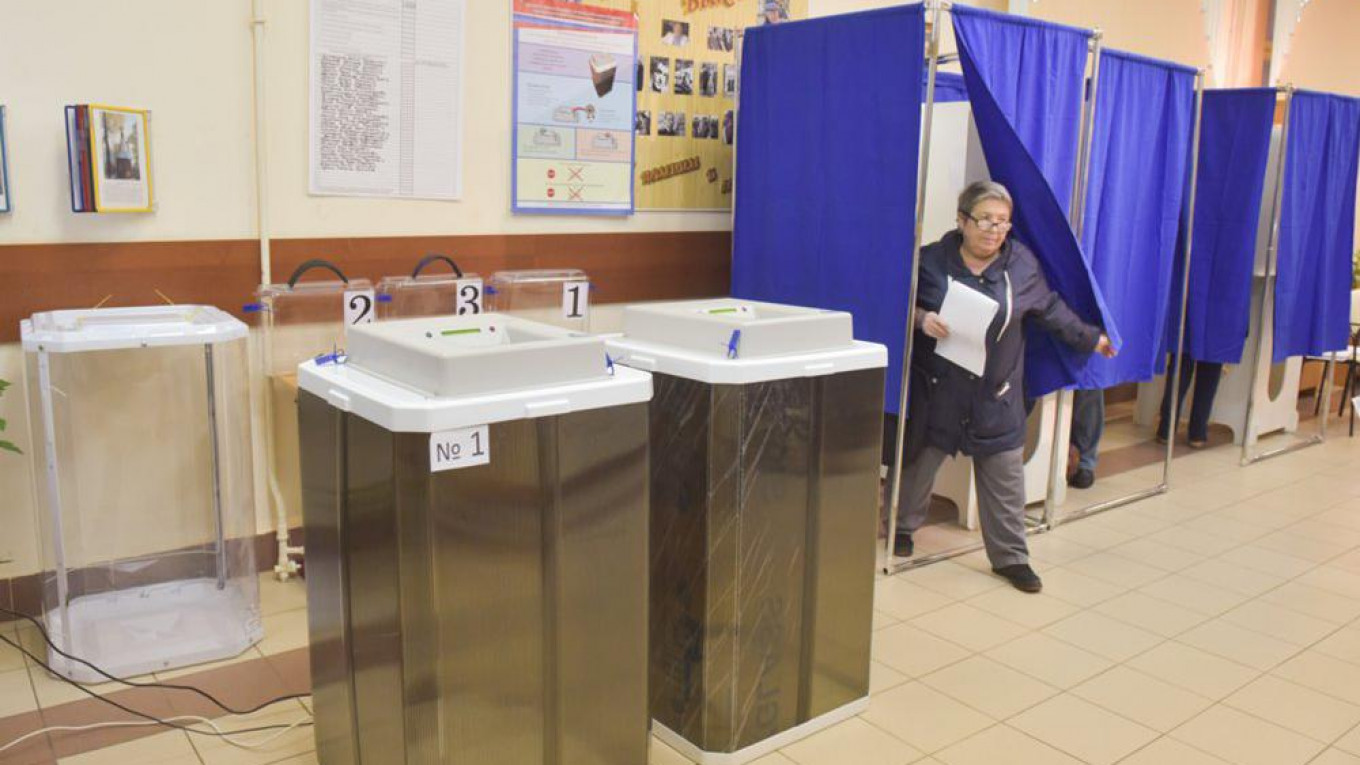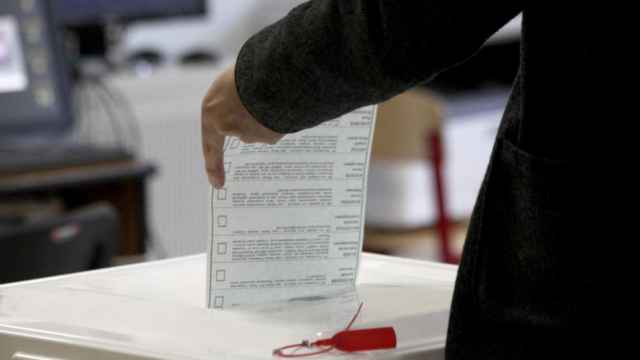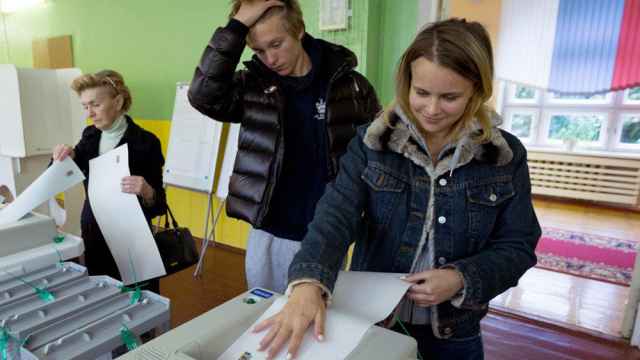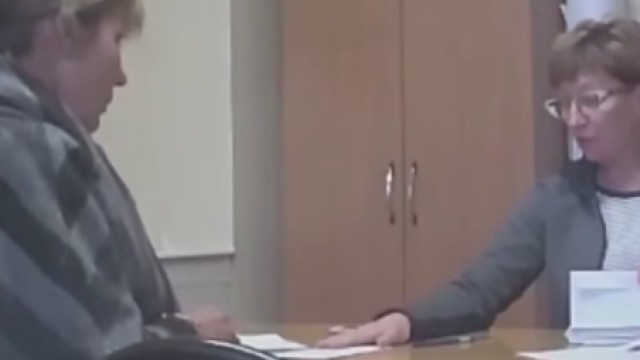On Sunday, 82 Russian regions held elections for different levels of government. Sixteen regions — including Sverdlovsk, Tomsk, and Karelia — went to the polls to elect a new governor.
Other regions staged elections for local and regional councils.
The elections traditionally attract little interest. But this year the vote is widely seen as a bell-weather for mayoral elections in Moscow and presidential elections next year.
Here are the most important takeaways from the elections so far:
— On Monday morning, ballots were still being counted. According to the Yabloko opposition party's own count, it has won 180 seats. Other preliminary counts gave Yabloko 110 seats, and ruling party United Russia 418 seats. Another 43 seats went to independent candidates.
— At 2 a.m. on Monday, the Gudkov Headquarters said 190 of its "United Democrats" candidates it helped to run had won seats, and won a majority in eight Moscow districts. Gudkov's team reportedly also won 11 out of 12 seats in Moscow's central Tverskoi district.
— In total, there are 1502 seats up for grabs in Moscow.
— At 6 p.m. Moscow local time, two hours before polls were set to close, the turnout in Moscow was 12 percent. That number is roughly half the turnout during parliamentary elections last year.
— Ahead of Sunday, opposition politicians and some Russian media claimed city authorities were deliberately trying to downplay the election in order to secure a lower turnout, especially in Moscow, where the opposition has a larger presence.
— On Saturday, a YouTube video appeared to show a top official in Moscow's Novo-Peredelkino district bribing election monitors. As a result of the video, which quickly gathered tens of thousands of views, Moscow Mayor Sergei Sobyanin dismissed the official and her superior.
— The Moscow authorities “are doing everything they can to inculcate the people with electoral impotence," the head of the Moscow branch of the Yabloko opposition party Sergei Mitrokhin said, complaining of a range of violations, including ballot-box stuffing. "That way the same people are re-elected and the same people continue to take up government posts, which the Moscow and federal authorities need to push through their policies.”
— Human rights ombudswoman Tatyana Moskalkova echoed widespread complaints on social media that polling stations were difficult to find. “Where I live, and in many other Moscow homes, there was no information about the location of polling stations,” she was cited as saying by Interfax. “That way the voter turnout has been lowered for completely unfounded reasons.”
— According to the Golos election monitoring NGO, some Moscow residents were being forced to vote for specific candidates. In one video, an elderly resident of the Sokol district was shown bursting into tears after being pressured to cast her vote by “social workers.”
— In Moscow, two activists from Open Russia were detained. The activists were dressed as a reindeer and a lobster, and held signs saying “Fair Elections,” and “Everyone’s screwed."
— In other regions, the Golos monitoring NGO also registered violations. In North Ossetia, for example, at least two instances of ballot-box stuffing were caught on camera.
— Similar complaints came from Saratov.
— In total, Golos had received 1304 complaints by Sunday afternoon.
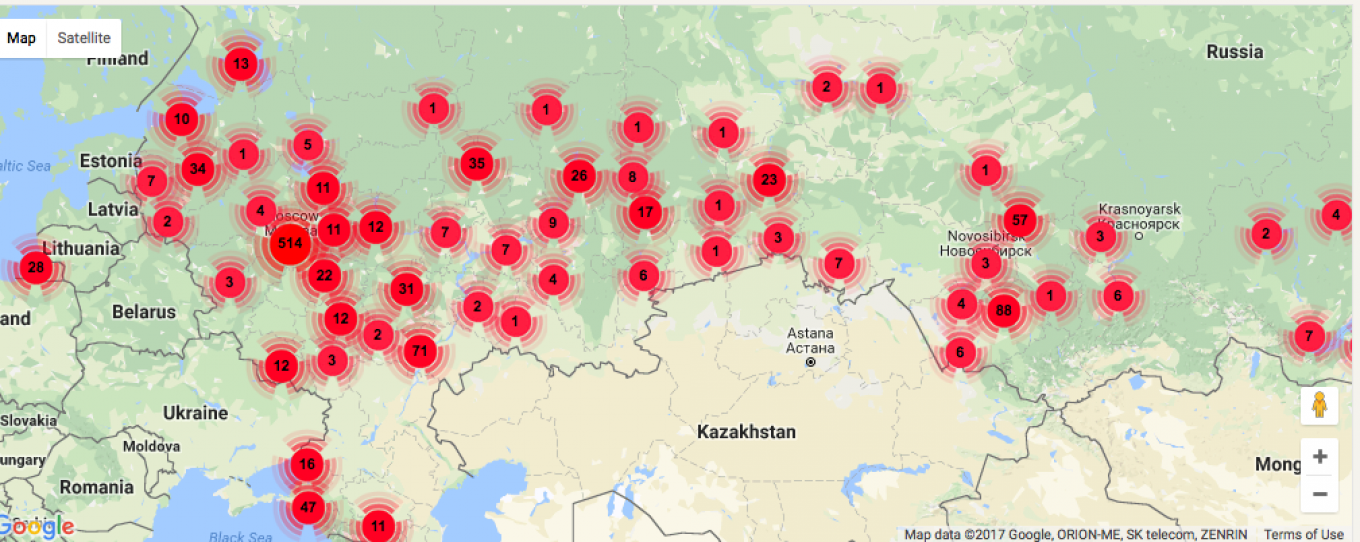
— In Irkutsk, three men were found to have been bribed with half a liter of alcohol. According to the regional head of the Central Elections Commission, the men were intoxicated when they arrived at the voting booth. “But we cannot forbid them to cast their votes today,” he was cited as saying.
— Nonetheless, the Central Elections Commission’s press spokesperson Maya Grishina said on Sunday afternoon it had not received any reports of violations which “could influence the election's results.” “There have been no complaints that require reviewing,” she said.
This story will be updated as the results are announced.
A Message from The Moscow Times:
Dear readers,
We are facing unprecedented challenges. Russia's Prosecutor General's Office has designated The Moscow Times as an "undesirable" organization, criminalizing our work and putting our staff at risk of prosecution. This follows our earlier unjust labeling as a "foreign agent."
These actions are direct attempts to silence independent journalism in Russia. The authorities claim our work "discredits the decisions of the Russian leadership." We see things differently: we strive to provide accurate, unbiased reporting on Russia.
We, the journalists of The Moscow Times, refuse to be silenced. But to continue our work, we need your help.
Your support, no matter how small, makes a world of difference. If you can, please support us monthly starting from just $2. It's quick to set up, and every contribution makes a significant impact.
By supporting The Moscow Times, you're defending open, independent journalism in the face of repression. Thank you for standing with us.
Remind me later.


